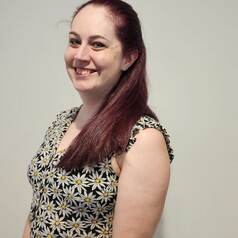
Erin Bradshaw
Research Assistant, Monash University
Erin Bradshaw is a research assistant and ECR in journalism in the School of Media, Film and Journalism at Monash University Caulfield.
Bradshaw is the senior research assistant for the ARC funded project "The culture of implementing Freedom of Information in Australia" https://www.monash.edu/arts/media-film-journalism/the-culture-of-implementing-freedom-of-information-in-australia.
Bradshaw focuses on Journalism Studies, Journalism Ethics, and Endometriosis in Journalism
Less ![]()


Erin Cooper-Douglas
Deputy Politics + Society Editor
Erin joined The Conversation after working across radio, television and online media at ABC News for more than six years. In her time with the national broadcaster, she won Best New Journalist at the Tasmanian Media Awards for her multiplatform work, including video-journalism. She did everything from presenting live radio to sub-editing digital stories. Her work has also been published by Reuters, The New York Times and The Mercury. Erin's based in Hobart, Tasmania.
Less ![]()
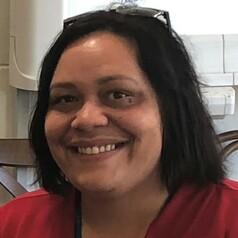
Erin Cunningham
Pinangba Support Officer, Indigenous Knowledge
Erin Cunningham is a Kalkadoon woman from the Cloncurry and Mount Isa region of Western Queensland. Erin is an Enrolled Endorsed Nurse (EEN) who worked for five years on Palm Island in both hospital and community nursing roles before joining Stagpole Street Drug and Alcohol Rehabilitation Unit (SSDARU). Erin is a Support Officer at SSDARU and is the lead investigator of the government-funded Pinangba project to evaluate their model of care. Erin holds a Post Graduate Certificate in Family Therapy from the Bouverie Centre and La Trobe University.
Less ![]()
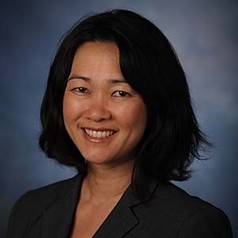
Erin Fuse Brown
Erin C. Fuse Brown, assistant professor of law, teaches Administrative Law; Health Law: Finance & Delivery; and the Health Care Transactional & Regulatory Practicum. She is a faculty member of the Center for Law, Health & Society. Her research interests are in the intersection of the business and regulation of health care delivery systems. Her recent scholarship has focused on policies affecting hospital prices for health care services and on the structural fragility of the right to health care in the Affordable Care Act.
Fuse Brown came from Arizona State University’s Sandra Day O’Connor College of Law, where she was a visiting assistant professor and visiting fellow in ethics and health policy with the Lincoln Center for Applied Ethics. Previously, she practiced in the health care group of the San Francisco office of Ropes & Gray LLP and clerked for Judge Alan C. Kay on the U.S. District Court in the District of Hawaii.
Fuse Brown received a J.D., magna cum laude, from the Georgetown University Law Center and a M.P.H. from the Johns Hopkins Bloomberg School of Public Health. While in law and public health schools, she was an associate editor of The Georgetown Law Journal, a Greenwall Fellow in Bioethics and Health Policy, and a senior researcher for The Center for Law and the Public’s Health. Fuse Brown holds a B.A, magna cum laude, from Dartmouth College in studio art.
Less ![]()
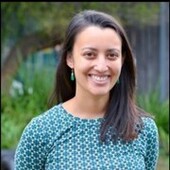

Erin Keating
Associate Professor, Department of English, Theatre, Film & Media, University of Manitoba
Dr Erin Keating is an Associate Professor in the Department of English, Theatre, Film & Media at the University of Manitoba. Her primary research focuses on the popular genres of 17th-century secret history and the theatre through the lenses of print culture, celebrity studies, and affect theory. She has published articles in this field on the relationships between genre, audience, and affect in both secret history and the Restoration theatre, on the role of gossip and popular print on Charles II's public persona, and on gatekeeping and masculinity in early coffeehouses in England. She also researches and teaches classes in contemporary fantasy genres, particularly epic fantasy and superhero narratives and has published on Alan Moore's and Dave Gibbon's comic Watchmen.
Less ![]()
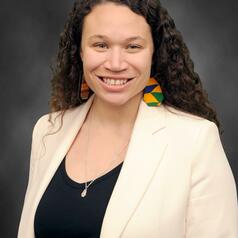
Erin Lain
Associate Dean for Academic Affairs and Professor of Law, Drake University
Erin Lain is a professor of law at Drake University and a triple alumna of the college. Her research focuses on legal education, academic success, and the bar exam. In addition to working at Drake University, Lain interned for federal magistrate Judge Celeste Bremer, directed the Council on Legal Educational Opportunity's (CLEO) Summer Institute, and taught at Simpson College. Some of her notable publications include "Experiences of Academically Dismissed Black and Latino/a Law Students: Stereotype Threat, Fight or Flight Coping Mechanisms, Isolation and Feelings of Systemic Betrayal" and "Emotional Intelligence: A Valuable Tool For Traditional And Non-Traditional Leaders." Lain is a recipient of the Best Qualitative Research Poster Award (from the Iowa Educational Research and Evaluation Association Annual Conference) and the True Blue Award for Excellence in Learning, Integrity, and Citizenship.
Less ![]()
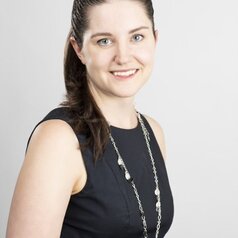
Erin Madden
PhD Candidate and Research Program Officer, University of Sydney
Erin Madden is a PhD Candidate and Research Project Officer at The Matilda Centre, University of Sydney. Her work focuses on translating mental health and substance use research into practice.
Less ![]()

Erin McCreary
Clinical Assistant Professor of Medicine, University of Pittsburgh
Dr. McCreary’s primary research interests focus on a “bench to bedside” approach of optimizing pharmacokinetic and pharmacodynamic principles for antimicrobial utilization and translational antibiotic stewardship initiatives. In less than 18 months at UPMC, she led and implemented stewardship initiatives including: dose-optimization of anti-pseudomonal beta-lactam antibiotics, comprehensive antimicrobial dosing chart by indication, transplant prophylaxis guideline updates, novel necrotizing skin and soft tissue infection pathway, evaluation and assessment of beta-lactam allergy pathway, vancomycin area-under-the-curve-based dosing pharmacokinetic service, and antifungal stewardship.
Dr. McCreary is a pharmacist who serves as the Chair of the UPMC System COVID-19 Therapeutics Committee. She also engages in tele-stewardship with several communities hospitals and rounds with the Presbyterian Shadyside infectious diseases consult services. She specializes in the management of patients infected by drug-resistant and/or fungal pathogens.
Less ![]()

Erin Nelson
Associate Professor, Department of Sociology and Anthropology, University of Guelph
Erin Nelson holds a B.A. in International Development Studies and PhD in Rural Studies from the University of Guelph, and an M.A. in Geography from the University of Waterloo. She is Associate Professor in the Department of Sociology and Anthropology at the University of Guelph and Affiliate Faculty with the Guelph Institute of Development Studies.
Dr. Nelson's research explores the development of more sustainable food systems with a focus on agroecology initiatives in Canada and Latin America. She is interested in how knowledge-exchange builds capacity for agroecological production, and how agroecology contributes to ecological resilience and community wellbeing. As a community engaged scholar, she works in close collaboration with a wide range of partners, including civil society organizations and farmer networks in Canada, Mexico, and Cuba.
Less ![]()
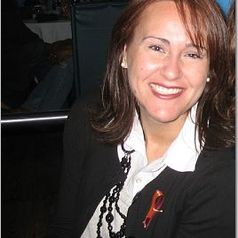
Erin O'Brien
Dr. O'Brien is Chair of the Political Science Department at University of Massachusetts Boston.
Less ![]()

Erin Power
Lecturer, Liverpool John Moores University
I am a Research Fellow on Doing Porridge: Understanding women’s experiences of food in prison and have recently completed a PhD entitled Performing Neoliberalism: Stories of care, conformity and resistance within contemporary prison theatre.
Prior to commencing my PhD I completed a MA in Applied Theatre and Criminal Justice at the Central School of Speech and Drama and have worked as a freelance arts facilitator in prisons, as well as holding roles delivering relationship based groupwork programmes for the prison advice and care trust.
My research interests include prison theatre, care and care aesthetics, neoliberalism, and gender and imprisonment. I utilise my background as an arts practitioner in both my methods and dissemination.
Less ![]()

Erin Pritchard
Senior lecturer in Disability Studies, Liverpool Hope University
Dr Erin Pritchard is a senior lecturer in Disability studies, at the School of Social Sciences at Liverpool Hope University, in the UK. She is also a core member of the Centre for Culture and Disability studies. Her work focuses on the social experiences of people with dwarfism, including how representations of people with dwarfism in the media affect how other members of society perceive and treat them. Erin's work has featured in both academic and non-academic literature, including the Times Higher and the Big Issue. She has also been featured on BBC Radio 4 where she discussed the problem of people photographing people with dwarfism in public spaces.
Less ![]()

Erin A. Brennand
Gynecologist & Associate Professor, University of Calgary
I am a practicing Urogynecologist and an Associate Professor in the Departments of Obstetrics & Gynecology and Community Health Sciences at the Cumming School of Medicine, University of Calgary. My clinical practice focuses on surgical gynecology and the treatment of pelvic floor conditions (pelvic organ prolapse, incontinence, voiding difficulties). I have an active research portfolio related to female reproductive health, which utilizes multiple methodologies such as primary data collection in clinical research, population and cohort based epidemiologic methods, as well as qualitative studies.
Less ![]()
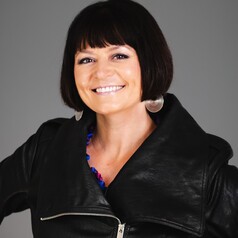
Erin A. Cech
Associate Professor of Sociology, University of Michigan
Erin A. Cech is an Associate Professor in the Department of Sociology and Associate Professor by courtesy in the Department of Mechanical Engineering at the University of Michigan. Cech was a Postdoctoral Fellow at the Clayman Institute for Gender Research at Stanford University and earned her Ph.D. in Sociology from the University of California, San Diego and undergraduate degrees in Electrical Engineering and Sociology from Montana State University.
Cech's research examines cultural mechanisms of inequality reproduction--specifically, how inequality is reproduced through processes that are not overtly discriminatory or coercive, but rather those that are built into seemingly innocuous cultural beliefs and practices. Cech’s research is funded by multiple grants from the National Science Foundation. She is a member of the editorial board of the American Journal of Sociology and her research has been cited in The New York Times, Harvard Business Review, Time, The Washington Post, The Guardian, Forbes, Chronicle of Higher Education and the news sections of Science and Nature.
Cech's first book, The Trouble with Passion: How Searching for Fulfilment at Work Fosters Inequality (University of California Press) was published Nov 2021 and was named one of Financial Times' Best Business Books of 2021.
Less ![]()
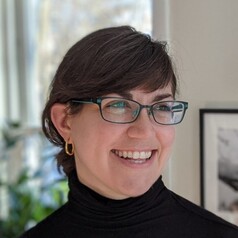
Erin Coughlan de Perez
Professor of Climate Risk Management, Tufts University
Erin Coughlan de Perez, Ph.D., bridges science, policy, and practice in her research on climate risk management around the world. She focuses on extreme events, exploring how droughts, floods, heatwaves, and other climate shocks can be anticipated before they happen. Erin works with humanitarian teams to develop early action protocols to avoid disaster impacts, and she researches the adoption and effectiveness of climate change adaptation measures.
Erin comes to the Feinstein Center from the Red Cross Red Crescent Climate Centre, where she built a global climate science team and led the first Forecast-based Financing pilots in the Red Cross Red Crescent Movement. Erin retains a senior advisor position at the Climate Centre, to maintain links to humanitarian operations around the world. Erin was formerly an Associate at Columbia University. Erin received her Ph.D. from Vrije Universiteit Amsterdam, her M.A. in climate and society from Columbia University, and her B.S. in environmental science and international development from McGill University.
Erin is also a lead author of the Intergovernmental Panel on Climate Change (IPCC) 6th Assessment Report. Her chapter is Decision-Making Options for Managing Risk, as part of the Working Group II on Impacts, Adaptation, and Vulnerability.
Less ![]()
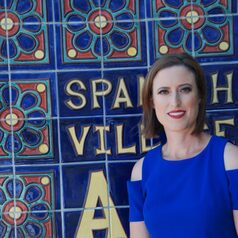
Erin K Hogan
Associate Professor of Spanish, University of Maryland, Baltimore County
Dr. Erin K. Hogan (University of Maryland Baltimore County) studies contemporary Iberian cultural production with a current interest in the uses of comedy and satire for social justice. Her book, Patriarchy’s Remains: An Autopsy of Iberian Cinematic Dark Humor, is forthcoming from McGill-Queens University Press in 2024. Dr. Hogan is also the author of The Two cines con niño: Genre and the Child Protagonist in Over Fifty Years of Spanish Film (1955-2010) (Edinburgh University Press 2018), which utilizes the metaphor of ventriloquism to examine control of the voice and body of the child protagonist dummy, and numerous articles.
Less ![]()
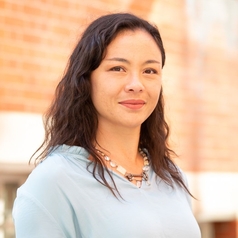
Erin K. McFee
Professor of Practice of Climate Security, National Defense University
I am a Professor of Practice at the William J. Perry Center for Hemispheric Defense Studies at the National Defense University, where I focus on climate security and the reintegration of formerly armed actors (FAAs), such as military veterans, ex-guerrillas, former cartel members, and ex-insurgents. I also serve as the President and Chair of the Corioli Institute, hold a UKRI Future Leaders Fellowship at the London School of Economics and Political Science, am an Affiliated Faculty member at the Carter School for Peace and Conflict Resolution, and the Lead Researcher at the University of Chicago’s Office for Military Affiliated Communities (OMAC). As a political anthropologist, I have published and been interviewed in a wide range of academic peer-reviewed, popular, and practitioner forums across more than 20 countries. I have additionally consulted regularly with the International Organization for Migration (IOM) since 2016 in the Latin American, Arab, and African regions on climate security, migration, and reintegration. I earned my Doctorate and Master’s degrees in Comparative Human Development from The University of Chicago, an MBA from Simmons College, and have completed several Executive Certificates in Climate Change, Leadership and Leading Change (Harvard Kennedy School), and Conflict and Fragility Management (Geneva Graduate Institute).
Less ![]()
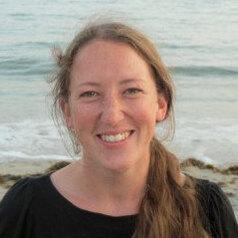
Erin L. Meyer-Gutbrod
Assistant Professor of Earth, Ocean & Environment, University of South Carolina
Erin is an Assistant Professor in the School of the Earth, Ocean and Environment at the University of South Carolina. She earned a BS in Physics at the University of Notre Dame and a PhD in Earth and Atmospheric Sciences at Cornell University. She is a quantitative marine ecologist that uses statistical, demographic and spatial models to understand how marine species respond to environmental processes. Many of Erin's research projects focus on human impacts to threatened or economically valuable species. Erin also serves on the Justice, Equity, Diversity & Inclusion (JEDI) committee for The Oceanography Society and edits a quarterly JEDI column in Oceanography magazine.
Less ![]()

Erin T. Fitzpatrick
Master's Student in Clinical Psychology, University of British Columbia
Originally from Nova Scotia, Erin (she/her/hers) graduated with an Honours degree in Psychology from Dalhousie University in 2020. She is now a graduate student in the Clinical Psychology program at The University of British Columbia. Erin is supervised by Dr. Samantha Dawson and works out of the Sexuality and Well-being Lab. Erin’s research focuses on discovering novel methods for improving couples’ sexual and romantic realtionships as they transition to parenthood (i.e., pregnancy and the postpartum) and beyond. Erin is also a Cohort Member of the Guiding Interdisciplinary Research on Cis- and Transgender Women and Girls’ Health and Well-being Program and the Senior Student Representative for Canadian Sex Research Forum.
Less ![]()

Erna Ruijer
Assistant Professor of Governance, Utrecht University
Erna Ruijer is assistant professor at the Utrecht University School of Governance (USG). She worked as a researcher in the multidisciplinary EU Horizon 2020 project ROUTE-TO-PA. In this three your project she worked with 12 partners from 6 different countries. Her research activities focus on the re-use of open data for public problems, data and social equity, and data collaboratives. Erna teaches in the bachelor and master program.
Erna obtained her Ph.D. in Public policy and Administration at the Douglas Wilder School of Government and Public Affairs, Virginia Commonwealth University, USA.
Before returning to academia Erna worked as a policy maker for the city of Amsterdam and as a consultant at a firm specialized in government communication.
Less ![]()
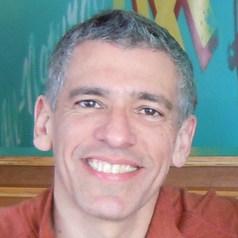
Ernesto Sagás
Professor of Ethnic Studies, Colorado State University
Dr. Ernesto Sagás is Professor of Ethnic Studies at Colorado State University. He has a Ph.D. in political science from University of Florida with a concentration in Latin American studies. Dr. Sagás is the author of Race and Politics in the Dominican Republic, as well as articles on race and politics, democracy and authoritarianism, immigration policies, and other topics. In addition, he has co-edited three books: The Dominican People: A Documentary History; Dominican Migration: Transnational Perspectives; and Dominican Politics in the Twenty First Century: Continuity and Change. He is also a political analyst for Univisión Colorado, commenting on issues ranging from U.S. domestic politics and elections to foreign affairs, and he is frequently interviewed by local, national, and international media outlets in both English and Spanish. During 2022, Dr. Sagás was a Fulbright U.S. scholar in La Paz, Bolivia. Currently, he is working on a book about democracy and authoritarianism in the Hispanic Caribbean.
Less ![]()
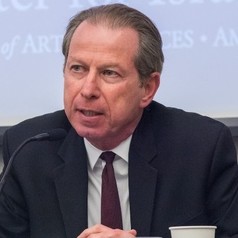
Erran Carmel
Professor of Business, American University Kogod School of Business
Professor Carmel teaches Information Technology (I.T.) at the Kogod School of Business at American University in Washington D.C. He studies or has studied various technology-related topics. He is currently studying the future of identity technologies. He has also studied the globalization of technology work: crowdsourcing, impact sourcing, global software teams, offshore outsourcing,
Less ![]()
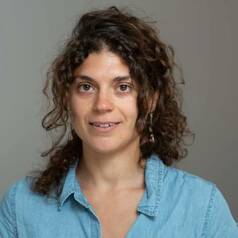
Ersilia Verlinghieri
Senior Research Fellow at the Active Travel Academy, University of Westminster
Ersilia Verlinghieri is a Senior Research Fellow at the Active Travel Academy, University of Westminster and a Senior Researcher in Urban Mobility at the Transport Studies Unit, University of Oxford. Since 2012, her work focuses on developing theoretical and methodological approaches to issues of social and environmental justice in transport. Her research has a specific focus on participatory planning and research methodologies and in analysing the contribution of grassroots actors in reshaping transport policy and planning. Between 2016 – 2020 she was also the Coordinator of the Global Challenges in Transport Programme, which brings together practitioners, campaigners, and academics to discuss the future of transport.
Less ![]()
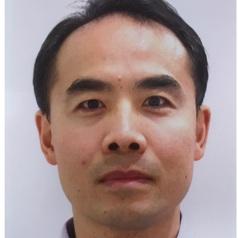
Erwei (David) Xiang
Senior Lecturer (Associate Professor) in Accounting, Newcastle University
David’s research interests include capital markets research, sustainability and social responsibility accounting, corporate finance, corporate governance, R&D investment & innovation, and interdisciplinary research.
His publications have appeared in journals, such as Journal of Economic Behaviour & Organization, Energy Economics, International Review of Financial Analysis, Finance Research Letters, Business Strategy and the Environment, International Review of Economics and Finance, International Journal of Human Resource Management, International Journal of Hospitality Management, Global Finance Journal, Journal of Cleaner Production, Corporate Social Responsibility & Environmental Management, Journal of Contemporary Accounting & Economics, International Journal of Managerial Finance, Journal of Accounting in Emerging Economies, and Science, Technology and Society.
v
Less ![]()

Eryn White
Reader, Aberystwyth University
I am a historian of early modern Wales, with special interests in religion, culture and society. I have published extensively on eighteenth-century Wales in particular, but have also worked on print culture in Wales more broadly and on early Welsh Nonconformity. Other interests include the history of crime and of landownership, especially in south-west Wales. I am the editor of Ceredigion, the journal of the Ceredigion Historical Society. I am also a member of a number of editorial boards, including for 'Studies in Welsh History' for the University of Wales Press.
Less ![]()

Esbjörn Wettermark
Research Associate of Ethnomusicology, University of Sheffield
As an ethnomusicologist currently working with the folk scene/s in the UK, I have a particular interest in contemporary folk arts practices, representations of Romani and Travellers and the role of music archives. Prior to my research in the UK, I worked on Vietnamese music and music theatre over many years. This included my Masters and PhD research in Ethnomusicology at Goldsmiths and Royal Holloway as well as my work with the international research project Sustainable Futures for Music Cultures.
In addition to my academic role, I have worked in arts management as Producer for folk and world music in Sweden (Region Gavleborg, 2017-2019) and as Education Manager for the English Folk Dance and Song Society (2019-2022). As a musician I was awarded the Swedish title Riksspelman (National Folk Musician) in 2005 for my performance of traditional music from Halsingland, northern Sweden..
Less ![]()

Esin Ozdil
Senior Lecturer in Accounting, La Trobe University
Dr Esin Ozdil is a passionate accounting educator and researcher at the Department of Accounting, Data Analytics, Economics & Finance of La Trobe Business School. She has a track record of subject coordinating and teaching professionally accredited accounting subjects and providing a positive, accessible, inclusive and engaging learning experience to a diverse cohort of students.
Her interdisciplinary research focuses on public sector and management accounting, strategic management, organisational change, accounting education, and ethical qualitative accounting, published in prominent peer-reviewed accounting journals recognised by the Australian Business Deans Council (ABDC) and Web of Science (WoS).
Less ![]()

Esli Chan
PhD Candidate in the Department of Political Science, McGill University
Esli Chan is a PhD Candidate in the Department of Political Science at McGill University. Her research focuses on the intersection of gender issues, disinformation and social media, and far-right extremism. She is affiliated with the Centre for Media, Technology, and Democracy and the Center for International Peace and Security Studies. She has former experience in foreign relations and international security in the federal government.
Less ![]()
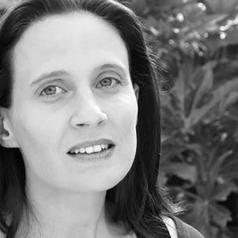
Esme Miskimmin
Senior Lecturer, Programme Lead for English Literature and English Literature with Drama Studies, University of Liverpool
My main area of teaching and research / scholarship is Renaissance drama / Shakespeare, and my work on Shakespeare and Early Modern theatre has a pedagogical basis: I worked for four years on the editorial team of the RSC Complete Works (2008) and the individual volumes of the plays (2008-2012), producing chapters aimed at students for the latter, and I recently contributed a chapter on 'Richard II Learning and Teaching Resources: Text, Context and Performance' to Arden Critical Reader. In addition to university-based teaching, I have worked in conjunction with the Everyman&Playhouse theatres in Liverpool, contributing to their outreach and wider participation events, and have been involved in designing a scheme of work aimed at contextualising Shakespeare in the lives of year 7 pupils for the Shakespeare North 'Our Place' project.
I also have interests in genre-based literature studies, specifically in crime fiction and children's literature and I occasionally manage to combine these with each other, and / or with drama, considering the ways in which detective fiction makes use of models and narratives of Renaissance drama, for example, or their shared concerns with the metatheatrical/metatextual. My current focus, in collaboration with my colleague Dr Katie Knowles, looks at the ways in which children's literature represents the theatre and the child performer.
Less ![]()

Esong Miranda Baame
PhD Candidate, Université de Dschang
Miranda is receiving funding for her PhD through a grant from CLEAN-Air(Africa), which is based at the University of Liverpool
https://orcid.org/0000-0003-4748-560X
Less ![]()
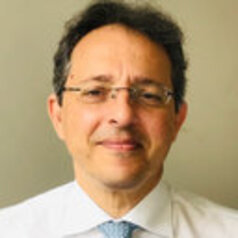
Esper Georges Kallás
Diretor do Instituto Butantan e Professor Titular do Departamento de Moléstias Infecciosas e Parasitárias, Faculdade de Medicina da USP (FMUSP)
Médico Infectologista, Esper Kallas é Professor Titular do Departamento de Moléstias Infecciosas e Parasitárias da Faculdade de Medicina da Universidade de São Paulo. Realiza projetos trazendo conceitos de ciência básica para aplicações clínicas, especialmente em doenças infecciosas. Faz parte de um dos consórcios internacionais de pesquisa em busca de novas estratégias para vencer a infecção pelo HIV e é o investigador principal da vacina contra a dengue Butantan-DV, em desenvolvimento no Instituto Butantan, em São Paulo. É diretor do Centro de Pesquisas Clínicas do Hospital das Clínicas da FMUSP. Em 2023 foi eleito Diretor do Instituto Butantan, em São Paulo.
Less ![]()
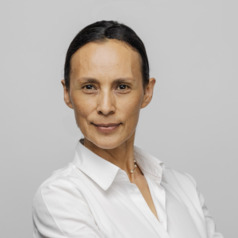
Esperanza Martinez
Professor of Practice and Head of Health and Human Security, College of Health and Medicine, Australian National University
Dr. Martinez is Professor in Practice and Head of Health and Human Security at the Australian National University’s College of Health and Medicine. Her work involves integrating knowledge and expertise from various disciplines to address complex challenges impacting populations at risk in Australia, the region, and globally.
Prior to joining ANU, Dr. Martinez played a key role in leading responses to global crises such as the COVID-19 pandemic and humanitarian efforts in Ukraine, working with the International Committee of the Red Cross (ICRC) in Geneva. She also directed the ICRC’s Health division for five years, ensuring the delivery of critical healthcare services across more than 80 countries.
Trained as a medical doctor and general surgeon in Colombia, Dr. Martinez later specialized in public health and health management in Australia. Over the course of her humanitarian career, she has spent more than a decade working directly in armed conflict-affected countries.
Less ![]()
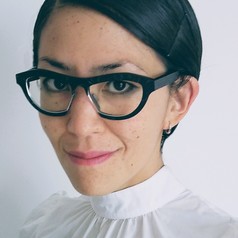
Esperanza Miyake
Chancellor's Fellow - Journalism, Media and Communication, University of Strathclyde
I specialise in the critical analysis of gender, race and digital media/technology. My current research examines this intersection from the perspective of digital justice and equality, looking A.I., smart tech, social media and other technopractices in everyday life that oppress, marginalise and disadvantage minority groups. My most recent books include: 'Digital Disengagement: Covid-19, Digital Justice and the Politics of Refusal' (2023)(w/ A Kuntsman and S Martin); 'Paradoxes of Digital Disengagement: In Search of the Opt-out button' (2022)(w/ A Kuntsman); and 'The Gendered Motorcycle: Representations in Society, Media and Popular Culture" (2018). I am have a forthcoming book on digital identities and virtuality (Routledge).
Beyond publications, I am currently a member of OFCOM's Making Sense of Media Research Working Group, and have also been part of the Scottish Government's Independent Expert Group, working on the Unlocking the Value of Scotland's Public Sector Personal Data Programme (2022-23). My articles have appeared in international media outlets such as The New York Times and Newsweek Japan, and have appeared on BBC 10 o'clock News, BBC Radio 4 and BBC Radio Scotland to discuss issues around technology and/or gender.
Less ![]()
- Market Data





















